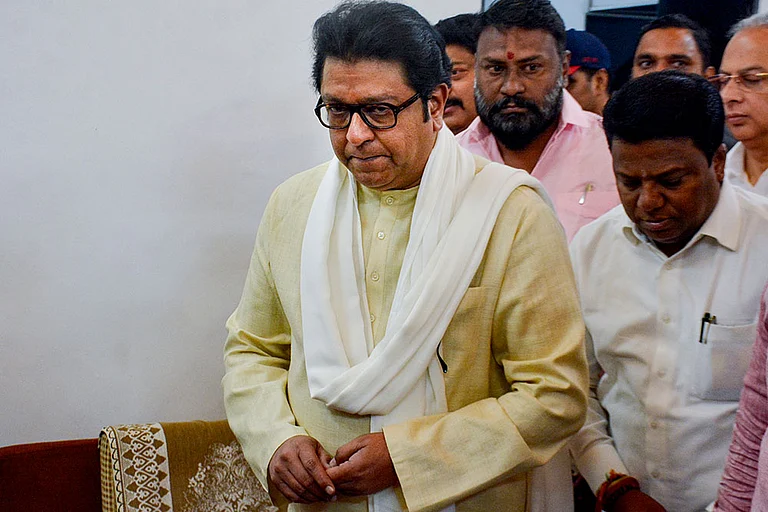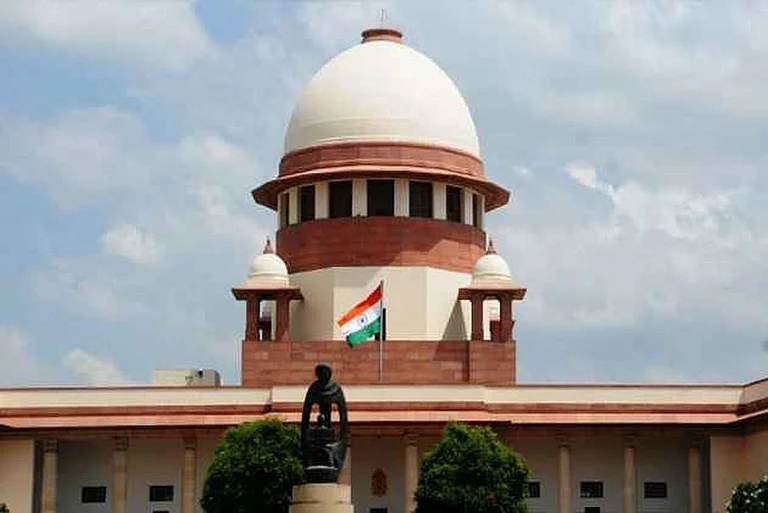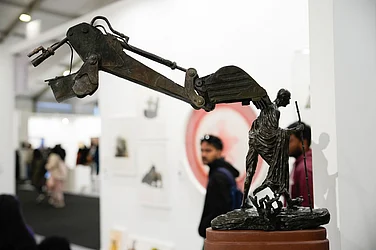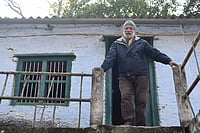Perhaps the saddest casualty of the lockdown that the Coronavirus has made mandatory for our safety is the fact that Junoon has had to pull down the curtains on its eight-year-long very active existence. To me, it signifies the extinguishing of a candle that symbolised hope.
Eight years ago, Sanjna Kapoor and Sameera Iyengar, lovers of theatre and the arts, decided to strike out on their own. Sanjna was blazing a trail, much like her grandparents had done, finding ways to take art to the people. And one has only to meet Sameera to know that she is a human dynamo, lit by her zeal for the arts. What the two of them, with a small group of happily engaged co-workers, powered by an enthusiasm that seemed to have no limits have achieved in the past eight years is mind-boggling in not just its reach but in how close to their mission they could get. Interacting with various universes to reach art and its understanding across, encouraging amateur and professional alike to give of their knowledge, and finding ways to share it all with schools as well as laypeople across ages.
At a glance, the numbers are impressive: in Junoon’s Arts Encounters meant for school children, the group engaged with 46 schools across 16 cities in India, reaching out to and interacting with over 28,000 students, and getting 150 or so professional artists, scientists and performance groups involved in the interface.
The numbers, though impressive, do not reveal the heart and soul of the interactions. In an age when the rat race has taken over not just executive lives but builds pressure on schoolchildren to score better and better to stay abreast of the pack, Junoon brought in a breeze that was fragrant with the music and rhythms and colours of a more natural lifestyle, introducing them to a world of traditional dance and music that is rich in imagery and thought. With every interaction where whether it be Kathakali or Kathak, puppetry or Nautanki or even contemporary dance or classical music, the student and the teacher were introduced to the 'essential heartbeat of the form, its essential structures, its specific guidelines for creativity, and its space for improvisation and play.’ Layering this would be the introduction to the cultures and geographies that worked to create the unique form of art, as a means to understanding the bigger story. And the professionals would then follow it up with full-scale performances to spin the magic into a visual and aural treat that completed the experience.
Anyone who has worked at an event that coordinated children, institutions, professional performers and geographical locations knows the sweat and tears behind each event; but the Junoon teams never felt the stress, only the joy of doing what they loved doing and had set out to do.
I have personally attended a few of the events Junoon had organised in Mumbai under a project titled Mumbai Local. One had an Odissi dancer talking about her dancer career and how it helped her surmount her encounter with cancer and chemotherapy. It was at the Kitab Khana, a book store in South Mumbai, and there were hardly 20 people in the audience. More the pity, because I was inspired, moved and humbled by the dancer’s story and enchanted by her simple demonstration of her art.
In fact, I kept in touch thenceforth with the Mumbai Local events, taking in one or the other, if time and distance, and traffic permitted, and regret to say that like every typical Mumbai dweller, put the inconveniences before the reward that would await me if I surmounted them.
I realised the seamlessness of the organisation’s operation when I was invited to hold a session on my book of Guru Dutt and Abrar Alvi. It included my narrative and a reading as well as an audio-visual of clips from the Guru Dutt films mentioned in the book. And it was a no-frills venue, inside the Bhau Daji Lad Museum extension, the Junoon team coordinated with me and made sure everything was perfectly in order, so I had no reason to worry about technicalities and could concentrate on my ‘performance’.
Junoon also ran a training programme for theatre professional groups, to help them ‘sharpen the thinking and working processes’ and lead them to create three-year strategic road maps for themselves. Core Values, Group Sustainability, Audience Building, Communications, Financial Management, Fundraising and Administration, and the hands-on process of groups creating strategic plans were part of SMART which would help the groups get closer to realising their own desires and realities. The programme included mentorship and a venue to present plans followed by ‘a graduation party’.
And now, these wonderful flights into spaces that have been mostly forgotten by us who pride ourselves on being urban, single-minded professionals walking the path to success in career and achievement, will cease. And school children will no longer be invited to take a break from chasing marks to spend a day learning to listen and watch and understand the meaning of wonder. Artists and performers who have no godfathers will wait for their audiences; some striking it lucky, others perhaps delving into despair.
I quote below from a note sent by Sanjna and Sameera to all those who have interacted with Junoon in one way or the other:
These past few months have been decisive for Junoon. As we celebrated our 8th birthday on the 29th February we knew we were at a turning point that demanded tough decisions towards financially stabilising Junoon. We were moving towards this end. However, the current global scenario has shaken us. As you can imagine, the fragile existence of an arts organisation such as Junoon, has left us with very little options but to graciously call it a day. And it is with sadness that we have decided to close Junoon to ensure we do not undergo any more insurmountable losses.
I said in the beginning of this piece that the closing down of Junoon symbolised the snuffing of hope!
It will be. Because if there is not one corporate or government institution that thinks it worthy to support a semi-voluntary organisation that is promoting Indian arts and culture and imparting to children the joys these art forms can give to performers and audience alike, then indeed it is a sad commentary on the place of art in our increasing materialistic way of life. And what then does one hope for?
(The writer was the editor of Femina for over a decade.)


























